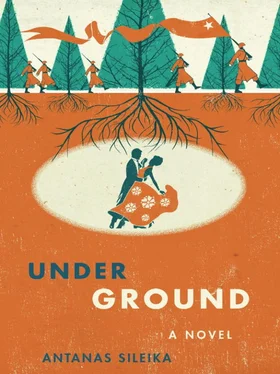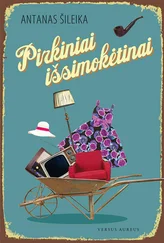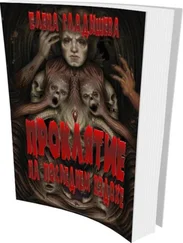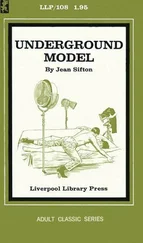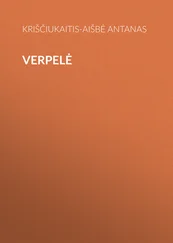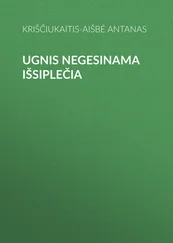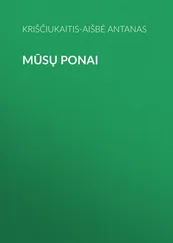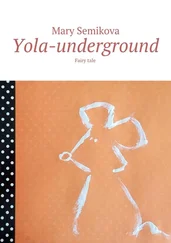At dawn they came to another forest. Their guide paused to draw a pistol from its holster and slip it up the sleeve of his sheepskin coat. He led them straight into a dense mass of pine branches, on the other side of which was a trail.
The guide held up his hand and they stopped. From somewhere a voice said “Ashes” and the guide responded “Dust.” They followed the trail, and soon there was a widening of the path and a clearing, at the end of which they could see a large campsite, the first in a series of linked sites, where a few men were moving about.
There were two long tables made of rough-hewn logs, an unlit bonfire was stacked in a deep pit, and the first clearing contained over a dozen lean-tos made of pine boughs with small fires of smokeless oak sticks burning at the ends.
This was the main camp, but as Lukas looked more deeply into the forest he saw that there was a series of clearings and the camp he stood in was only the first of several which ran one after another as far as he could see. At the other camps, some of the men were up and sitting around campfires. There were dozens of men in each of the campsites and therefore hundreds in all. A small army of irregulars was living among the pine trees.
He had never thought the Reds had undone so many. “Why all these camps?” Lukas asked.
“If we let the men stay in one big camp, they start to talk and make jokes and carouse too loudly at night, and the sound carries,” said the guide.
Just then Lukas heard a concertina begin to play quietly and some men started to sing.
His guide laughed at Lukas’s astonishment. “Some of them sing a little in the mornings during the winter to keep their spirits up. We forbade it in the summer because the shepherds started to bring their flocks around here to listen to the music.”
Between the second and third camps there was a crude corral with three cows in it. The Reds were driving cattle out of the defeated part of Germany along abandoned railway lines nearby, and the partisans went shopping for meat along this highway whenever they were short of food.
In the camp where they stood, most of the men were sleeping in twos and threes in their lean-tos. They were dressed and shod. Many had no blankets beyond their wool coats. At their sides lay weapons, an assortment of Russian and German grenades, pistols and automatic rifles as well as light machine guns. A heavy machine gun stood at the edge of the clearing.
The guide left them where they stood and went across the way to speak to a man with a beard.
The air was cleaner here, and the quiet music in the distance was sweet. Most of the partisans in this first camp were still sleeping, as it was after dawn and partisans did their work by night, but three men in a knot where they’d been studying a map on the table looked up, and one of them nodded and saluted them informally by touching the brim of his hat with his finger. Lukas nodded back.
It was going to be all right.
The guide returned and led the brothers to a lean-to of their own and gave them a bundle of rags to wrap their feet in so their socks could dry by the fire as they slept. Neither of the young men had slept outside in the winter before, but they were so tired that they did so easily.
Lukas awoke in the early afternoon to the smell of barley soup. His socks were dry on their sticks by the fire. Vincentas lay beside him on his back, his mouth slightly open. Lukas studied his brother, who had been so tired he had not even taken off his eyeglasses. They lay crookedly on his nose, steaming up slightly with every breath deflected from the scarf that Vincentas had tucked up over his lips.
Since he was otherworldly, Vincentas had required care all his life. Tree roots seemed to search out his feet to trip him, doors swung shut suddenly behind him, clipping his heels, and rabid dogs had a way of finding him, hoping for salvation. Sometimes Lukas got tired of looking out for him, especially because Vincentas was not particularly grateful. His mind was on loftier matters.
Even though he’d come here for the sake of his brother, Lukas was now happier than he’d been back on the uneasy streets of Kaunas. He did not need to pretend here, to force his feelings underground.
The camp was beginning to stir. Men in old Lithuanian army uniforms, or in a mix of military and civilian clothes, were moving about, some stamping their boots to start circulation in their feet, others checking their weapons, some smoking and talking or heating water with which to shave.
The guide came to them, roused Vincentas, and took them to meet the leader of their band, a bearded forty-year-old called Flint. He was the oldest man in the group, one of a few with military training, and he kept a pipe between his teeth much of the time. He looked them up and down like the captain of a ship eyeing new sailors.
“Is Kaunas so crammed full of people that there’s no room for you there?” he asked.
“That’s right,” said Lukas.
“Are you sure? It would be better for you if you went back, and better for us to have a couple of young undercover men we could count on in town. This is no kind of life you’re choosing, and once you’re in, there’s no getting out.”
“The Reds were starting to close in. They were going to come for us sooner or later.”
Vincentas was letting Lukas take the lead, eyeing the camp and the other men.
“Did either of you have military training?”
“No.”
“Know Morse code or how to use a radio?”
“Just to listen to the news,” said Vincentas suddenly.
A partisan within earshot laughed at this answer.
“I’m glad you can turn a dial,” said Flint. “But now you tell me what good you two would be to me. What do you have to offer?”
“I didn’t realize we had to offer anything,” said Vincentas. “I thought it was enough that we didn’t want to live like slaves.”
“What do you think this is, some kind of study group? The Cheka is looking for us now, as we speak. Or looking for me, anyway. There’s a price on my head. Freedom doesn’t come cheap. So what do you have to offer, if not military expertise or radio communications, or a machine gun? Do you have some inside information on a food warehouse? Or I’d love to get my hands on a small tank. Can you help me there?”
Vincentas shook his head. “I’ve had three years’ training in the seminary. I could be your chaplain.”
To Lukas’s surprise, Flint nodded at this. It made some sense. They lived in a religious country where prayers were as common as sparrows, and everyone needed to tell his troubles to someone.
“What about you?”
“Our parents were farmers. I was studying to be a teacher.”
“Can you write well?”
“Of course.”
“I mean longer pieces, articles. News. Essays.”
“That’s the sort of thing I did at school, yes.”
“All right, this is better than I thought. I have a lot of men who can pull a trigger. These camps are full of farm boys, but there are damned few men who can handle a pen or a typewriter. Mind you, everyone needs to be able to fight. But I want you to be sure about what you’re doing. You could hide out with your parents, you know.”
“We have another brother hiding out. Three of us would be too many.”
“I only want men who have no other choice, you understand? No patriots, no hotheads.”
“I’d rather be reading Maironis’s poetry in university if I could,” said Lukas. He looked around the camp. “And I wouldn’t sleep outside in the winter if I didn’t have to.”
“You’ll be glad enough to sleep outside after you’ve spent some time in a bunker. Listen, we own the countryside around here. We killed 170 Reds in a pitched battle in the Varchiai forest. The Reds stick to the main roads unless they’re travelling in force. But it’s hard to feed so many men at once. It puts too much strain on local farmers. We’ll have to break into smaller groups eventually, and when the weather warms we’ll dig some more bunkers in the earth. Are you claustrophobic?”
Читать дальше
